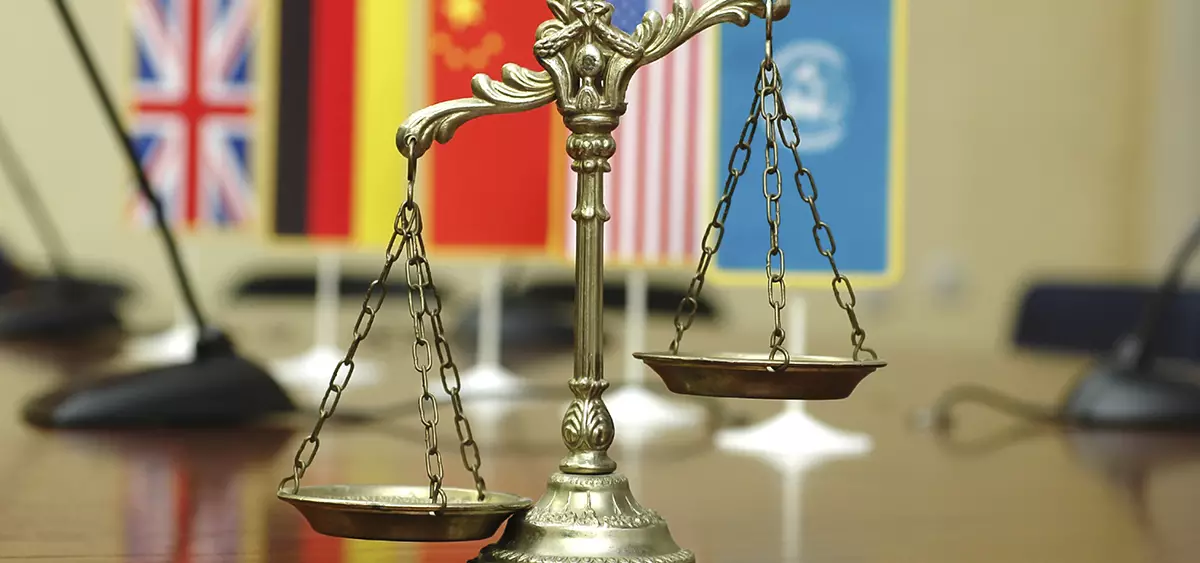Countries make laws that apply to their people and on their territory. These are called domestic laws and may be quite different from one country to another.
But there is also international law. International law applies:
- between different countries and to international organizations (public international law), and
- between citizens of different countries (private international law).
Globalization and advances in technology have made international law very important.

Public International Law
Public international law deals mostly with the rights and responsibilities that countries have toward each other. In international law, countries are usually referred to as “states.”
Public international law also applies to international organizations such as the United Nations (UN) and the World Trade Organization (WTO).
Public international law sets the rules for issues that concern all humankind: the environment, the oceans, human rights, international business, etc. Various international bodies enforce these rules. For example, the International Criminal Court investigates and hears cases of people accused of war crimes or crimes against humanity. This court applies “international criminal law.”
The rules of international law are found in treaties, conventions, declarations, agreements, customs and other sources. For example, the Kyoto Protocol is an international agreement on climate change. In this protocol, many countries have agreed to reduce their greenhouse gas emissions in order to protect the environment.
Another example is the Convention on the Rights of the Child. Countries that have signed this convention must respect the rights it gives to children and make sure these rights are made known and protected.
This brings us to a very important principal in international law: the sovereignty of states. This means that a country is free to accept or refuse to sign an international treaty or agreement. Other countries can put political or economic pressure on a country to sign the treaty, but they can’t force it to sign the treaty.
Private International Law
Private international law deals with relationships between citizens of different countries. For example, an American man and a French woman were married in France and now live in Quebec. If they want to divorce, the rules of private international law will determine whether they have to go to a US, French or Quebec court to get their divorce.
Private international law also applies to business. Globalization and the Internet mean that companies are doing more business in other countries. For example, if you run into a problem when buying something online from an American company and you want to sue, the rules of private international law will apply.





